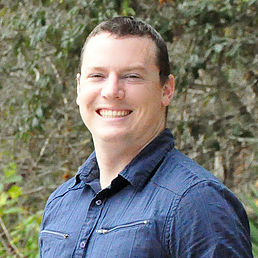Cognitive Processing Therapy: Everything you need to know about this Evidence-Based therapy for PTSD.

Cognitive Processing Therapy
Cognitive processing therapy (CPT) is a trauma-focused cognitive-behavioral therapy. It has been heavily researched and has been repeatedly shown effective in reducing symptoms of PTSD that developed after experiencing traumatic events including child abuse, combat, rape, and natural disasters.
Who developed Cognitive Processing Therapy?
Cognitive processing therapy was developed by Dr. Patricia Resick with the aid and assistance of other psychologists.
What are the goals of Cognitive Processing Therapy?
CPT aims to improve understanding of PTSD and PTSD symptoms, reduce distress about memories of the traumatic event(s), decrease emotional numbing (i.e., difficulty feeling feelings), decrease avoidance of trauma reminders, reduce anxiety and hypervigilance, decrease depression, guilt, and/or shame, and overall, improve daily life.
How many sessions is CPT?
CPT is usually administered over 12 individual therapy sessions, though this number may change based on patient needs.
How does Cognitive Processing Therapy Work?
CPT helps patients learn how to question and change maladaptive thoughts associated with the trauma. By doing so, the individual often develops a new perspective and understanding of the traumatic incident, thus reducing what are often daily negative impacts on day-to-day life, while simultaneously raising the quality of life. This treatment is strongly recommended for the treatment of PTSD.
What happens during a CPT session?
Each session has a set of topics or exercises to be discussed, which are typically followed in order. Broadly speaking, a single session of CPT will generally provide information on common reactions to trauma and assist in building an understanding of cognitive theory, identify and challenge unhelpful thoughts with structured therapy sessions, as well as assign and review regular out-of-session practice assignments designed to apply what has been discussed in each session.
What topics are covered in CPT?
Cognitive Processing Therapy covers a lot of ground and will look at the meaning of the traumatic event(s), what thoughts and feelings are associated with the traumatic event, as well as looking at specific topics which often result due to trauma, including trust issues, safety issues, issues related to power and control, as well as intimacy.
Does Cognitive Processing Therapy Work?
Yes. CPT is an Evidence-Based therapy, which has been repeatedly shown responsible for clinically meaningful results across a variety of different populations and trauma types. For more information, you may be interested in these meta-analyses which review dozes of scientific experiments examining CPT outcomes.
Do you provider CPT at Neurocove Behavioral Health, LLC?
Yes. Dr. Munyan provides Cognitive Processing Therapy in Orlando, FL via telehealth! If you are interested in discussing whether or not CPT is right for you, please contact us.
What other resources are there for CPT?
About the Author:
Dr. Benson Munyan is a Clinical Psychologist licensed in both Florida and Arizona. He is the Director of Neurocove Behavioral Health and specializes in the assessment and treatment of anxiety, depression, and trauma-related disorders. Dr. Munyan earned his Doctorate in Clinical Psychology from the University of Central Florida. He currently holds clinical privileges at both Neurocove Behavioral Health and the Orlando Veteran’s Affairs Healthcare System. He has also previously published clinical research and articles in peer-reviewed journals including PLoS One and Clinical Case Studies.
- Which Therapy is Best? - December 14, 2023
- How to deal with Burnout when you’re sick of everything and everyone. - February 23, 2022
- The Hidden Dangers of Social Media: How It Can Eat Away at Your Mental Health - August 21, 2021









